"We read in bed because reading is halfway between life and dreaming, our own consciousness in someone else's mind." Anna Quindlen, How Reading Changed My Life
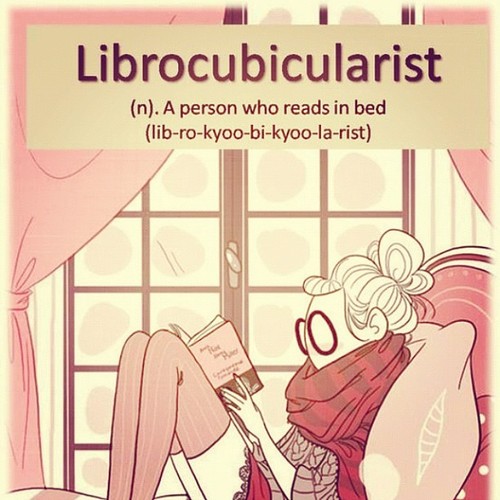 How many of us still read in bed? In a recent Guardian piece, British author Howard Jacobson considered this question, observing: "Someone should write a history of reading in bed.... of the whens and whys of bedtime reading in particular: how long it's been going on, the difference electricity made, the dawn and demise of privacy, whether taking a book to bed is rarer now, in an age of multiple distractions, than it was.... I point no accusing finger. It's an age since I last read a book in bed. Once I couldn't sleep until I'd managed at least 30 pages of a novel."
How many of us still read in bed? In a recent Guardian piece, British author Howard Jacobson considered this question, observing: "Someone should write a history of reading in bed.... of the whens and whys of bedtime reading in particular: how long it's been going on, the difference electricity made, the dawn and demise of privacy, whether taking a book to bed is rarer now, in an age of multiple distractions, than it was.... I point no accusing finger. It's an age since I last read a book in bed. Once I couldn't sleep until I'd managed at least 30 pages of a novel."
Jacobson rightly points out that "there's an intimacy in bedtime reading that might have something to do with the pillows and the sheets, but is more about what happens when you move your eyes across a page."
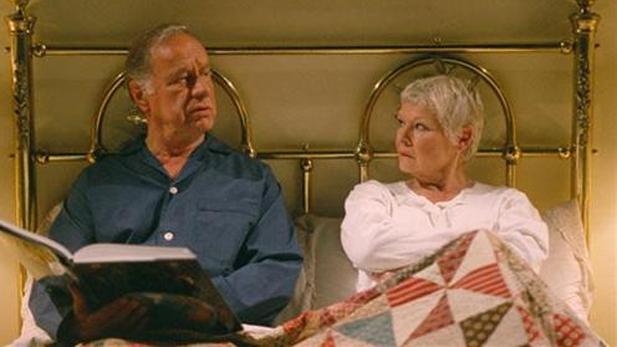 |
| credit: PBS |
When I think about reading in bed, a very particular, soothing image comes to mind--that of Lionel (Geoffrey Palmer) and Jean (Judi Dench) in the BBC series As Time Goes By: Here's a snippet from one of their bedtime chats:
Jean: Why are you reading Winnie the Pooh?
Lionel: I went to the library today.
J: Don't tell me you went to the children's library.
L: No, I got some other books as well. I've got more time for reading now, so I thought I'd catch up on all the books I think I've read but actually haven't. I got The Grapes of Wrath, The Mill on the Floss and Moby-Dick.
J: Winnie the Pooh? Don't you think you're a bit old for that?
L: I wouldn't like to think so.
They're just the aging poster children my Reading in Bed Renewal Program, which began this week, needs.
Reading in bed is not, however, "a pleasure unalloyed," as the Guardian cautioned in 1976: "In the first place, as with coffee whose smell promises more than its taste delivers, realization doesn't always measure up to anticipation. Secondly, it is not a pleasure naturally acquired. Experience, discipline and training are all necessary before it can be fully enjoyed. And, of course, all the skill and experience are as nothing if the conditions are wrong--if the bed is lumpy, if your sleeping partner is restless, or, as happened to me the night before last, if the bedroom is freezing cold."
During the 18th century, reading in bed was considered "a notorious practice that was practically synonymous with death-by-fire because it required candles," the Atlantic noted earlier this year. "Readers were urged not to tempt God by sporting with 'the most awful danger and calamity'--the flagrant vice of bringing a book to bed." The practice was also controversial "partly because it was unprecedented: In the past, reading had been a communal and oral practice."
_110917.jpg) |
|
Hamblin glasses: spectacles designed for reading in bed; England, 1936.
|
In 1908, the Guardian reported that Dr. Hugo Feilchenfeld warned the chief danger of reading in bed "is to the eyes, for the familiar reasons, first, that it is difficult to arrange the lighting so that it is sufficient and yet does not fall directly on the eyes, and, secondly, that it is difficult to hold the book in an optically correct position.... Young people, therefore, whose eyes are not yet set hard, as in adult life, should avoid reading in bed if they can."
There was hope, however, for a distant future when "publishers will issue bed-books--not the kind of books one ought to read in bed; one can only choose those oneself--but books suitable in typography and binding."
Also looking ahead was the New York Times in 1944: "The well-equipped bed of the future will have a headboard that assumes a literate sleeper. A built-in reading light will be of variable brilliance, adjustable to different type conditions and different sets of eyes. This headboard will have the comfort qualities of a chair, and it will provide arm-rests and a support for the book, as if by magic, by the pressing of an electric button. Does this seem too fantastic? Not if we can wake up the bed-makers."
An intriguing bit of advice in this article cited complaints that reading detective stories before sleep might be "overstimulating," though a simple remedy was suggested: "Decide in advance exactly what hour you will attempt to go to sleep, and 15 minutes before that time lay down your detective story and pick up any book of poetry. No matter what your opinion of poetry, it will make you forget murder within 15 minutes and soothe you into something like slumber." Sweet dreams with Charles Bukowski?
Books, not backlit cell phone and tablet screens, are the stuff bedtime reading dreams are made of. From the Times in 1953: "The ideal bed-book must open quite flat; it must have stiff covers to prevent the page from bending, and small pages for the same reason; it must be of very light paper so as not to fatigue the hand; the type must be large; the margin must be very wide, especially on the outer sides, on one or other of which the book rests according to the side one lies on."
As Jacobson concludes: "Words keep any reader busy any time, but you feel you've earned your sleep when you've wrestled with the angel of meaning at the end of a long day. No matter how intense the internal struggle, a person reading in bed gives off an aura of achieved calm."
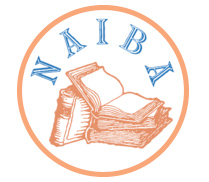 At the October meeting of the New Atlantic Independent Booksellers Association board of directors, the board adopted two position statements regarding "the rise of two issues at publishers and the effect these are having on our members' stores." The statements, which were released yesterday in NAIBAhood News, are:
At the October meeting of the New Atlantic Independent Booksellers Association board of directors, the board adopted two position statements regarding "the rise of two issues at publishers and the effect these are having on our members' stores." The statements, which were released yesterday in NAIBAhood News, are: 





SHELFAWARENESS.0213.S4.DIFFICULTTOPICSWEBINAR.gif)




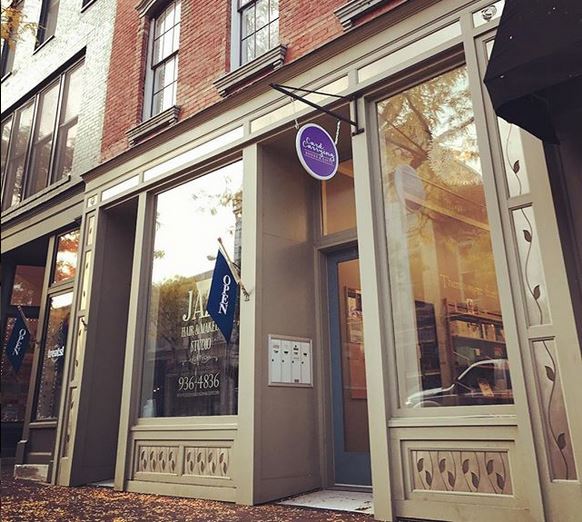 Card Carrying Books & Gifts
Card Carrying Books & Gifts
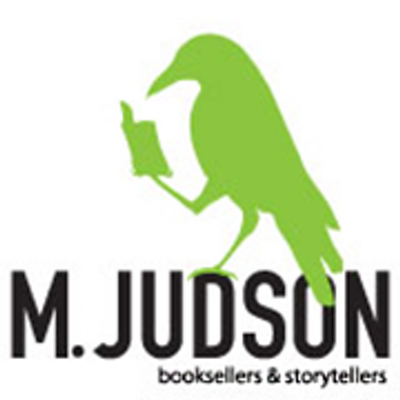 M. Judson Booksellers & Storytellers
M. Judson Booksellers & StorytellersSHELFAWARENESS.0213.T3.DIFFICULTTOPICSWEBINAR.gif)
 Macmillan Publishers is closing Pronoun, Inc., the self-publishing company it
Macmillan Publishers is closing Pronoun, Inc., the self-publishing company it 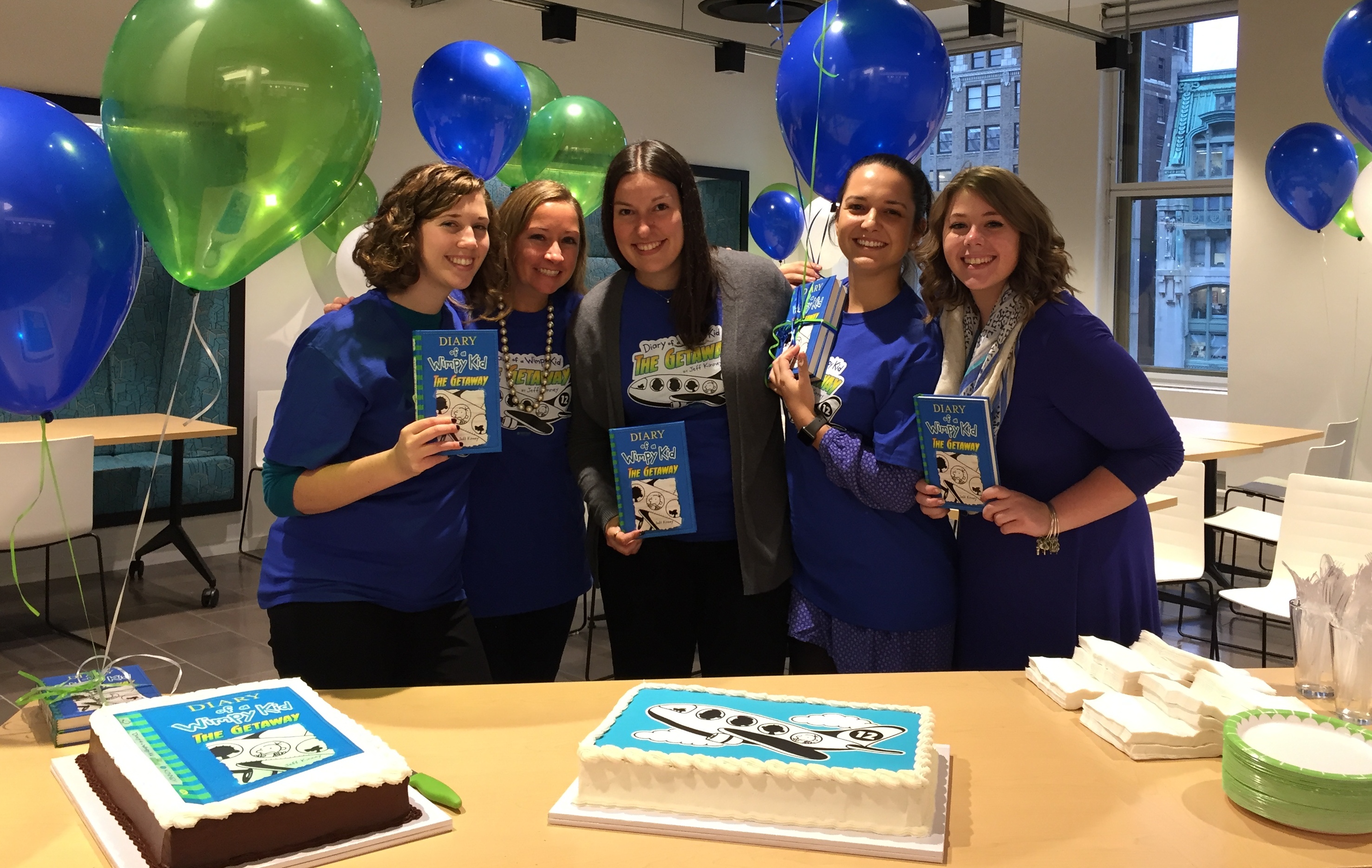 The children's marketing and publicity team at Abrams celebrated the release this week of Jeff Kinney's The Getaway, the 12th book in the Diary of a Wimpy Kid series. Pictured: (l.-r.) Nicole Schaefer (children's marketing associate), Trish McNamara (digital and social media marketing manager), Tessa Meischeid (associate publicist), Carmen Alvarez (assistant manager, children's marketing) and Megan Evans (children's marketing and publicity assistant).
The children's marketing and publicity team at Abrams celebrated the release this week of Jeff Kinney's The Getaway, the 12th book in the Diary of a Wimpy Kid series. Pictured: (l.-r.) Nicole Schaefer (children's marketing associate), Trish McNamara (digital and social media marketing manager), Tessa Meischeid (associate publicist), Carmen Alvarez (assistant manager, children's marketing) and Megan Evans (children's marketing and publicity assistant).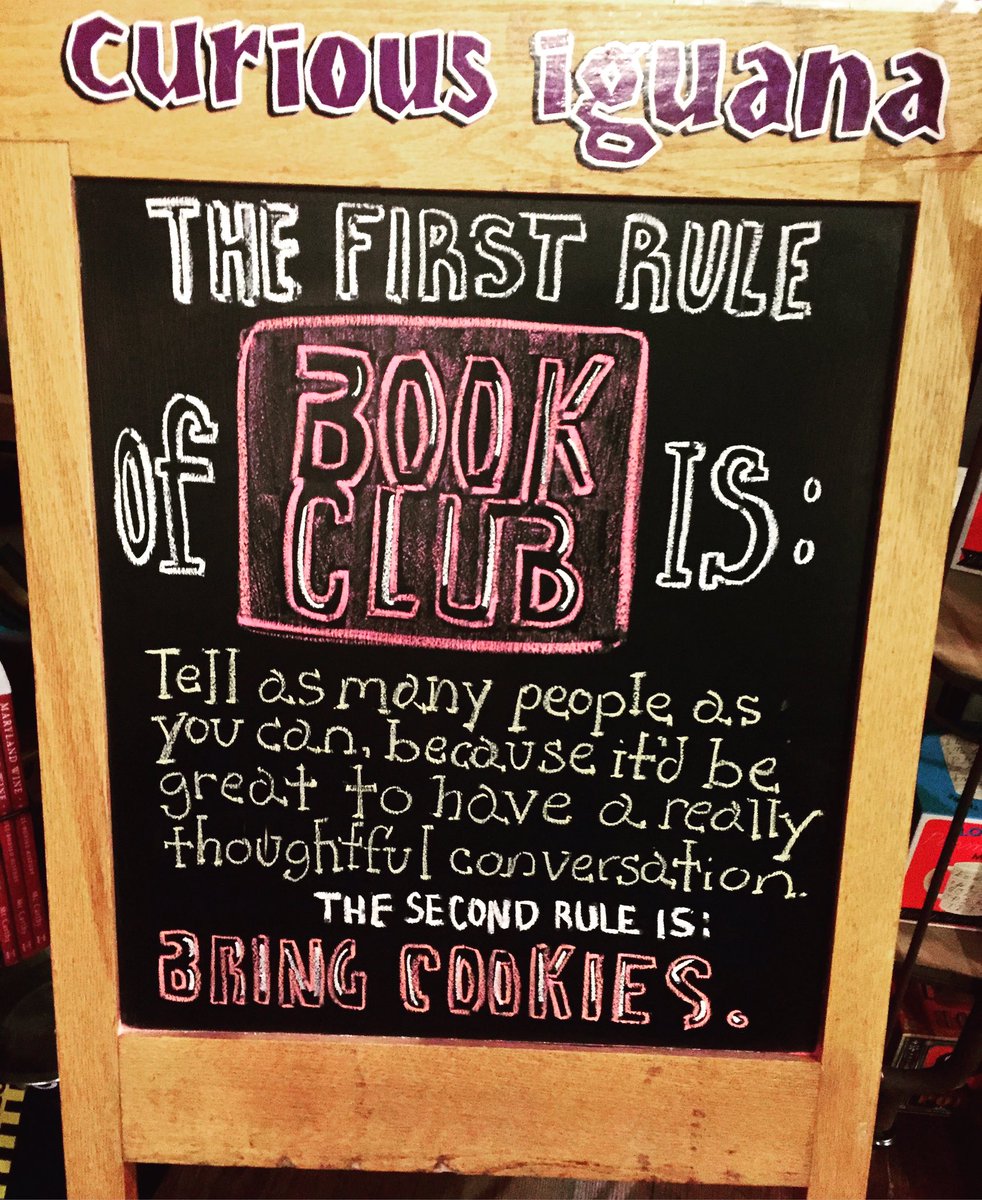 "
" Read the Book, Lemmings!
Read the Book, Lemmings!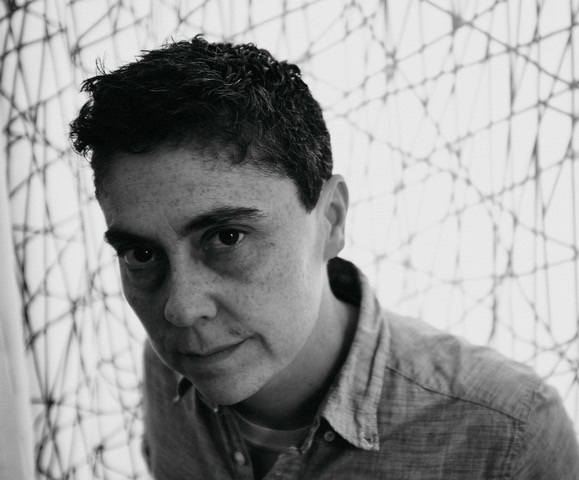
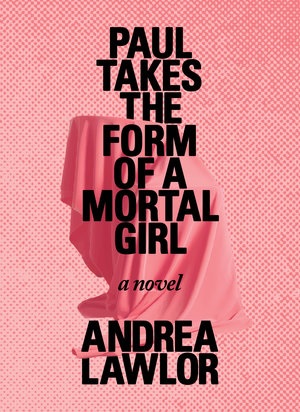 Book you're an evangelist for:
Book you're an evangelist for: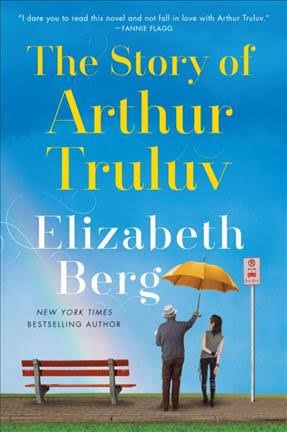 Surmounting grief and finding a way to persevere after the loss of a loved one emerges as the central theme of The Story of Arthur Truluv. Author of 26 books, Elizabeth Berg (
Surmounting grief and finding a way to persevere after the loss of a loved one emerges as the central theme of The Story of Arthur Truluv. Author of 26 books, Elizabeth Berg (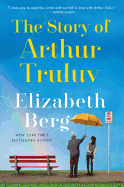


_110917.jpg)